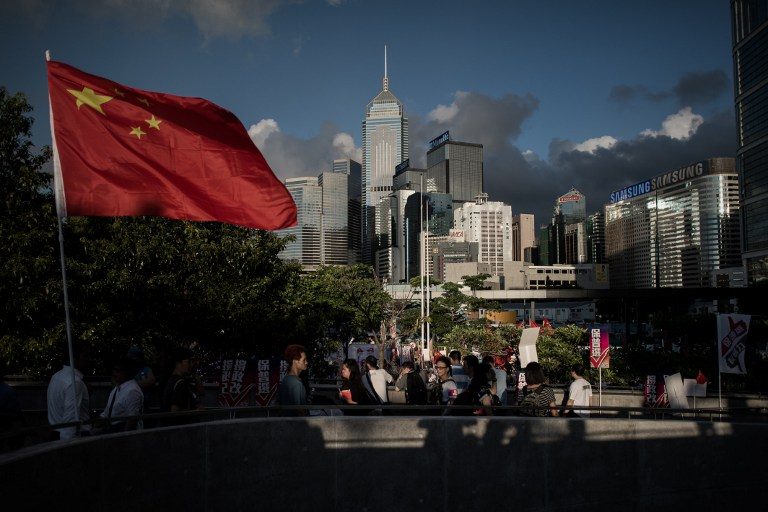SUMMARY
This is AI generated summarization, which may have errors. For context, always refer to the full article.

HONG KONG, China (3rd UPDATE) – Hong Kong lawmakers rejected a Beijing-backed political reform package Thursday, June 18, as pro-democracy legislators united to vote down a contentious electoral roadmap that has sparked mass protests.
Most pro-government lawmakers staged a walkout as the bill headed for defeat – a move slammed as “farcical” by the opposition and which analysts said could be interpreted as a slap in the face for the current administration.
Just 8 lawmakers cast their vote in support of the package, while 28 lawmakers voted against it, including all 27 pan-democrats.
The bill needed the support of 2/3 of the city’s 70-strong legislature in order to pass.
Although the Hong Kong government’s plan would have given all residents the right to vote for the chief executive for the first time in 2017, it adhered to a Beijing ruling that candidates must be vetted by a loyalist committee.
The proposal was derided as “fake democracy” by opposition lawmakers and campaigners.
The pro-government camp was left in disarray after the walkout.
“We have no idea what happened with the rest of the group suddenly deciding to leave the chamber,” said James Tien of the pro-government Liberal Party, whose members stayed to vote for the bill.
The lawmakers left after their request for a 15-minute suspension was rejected by the speaker.
Pro-government legislator Jeffrey Lam said they had requested the delay so that another lawmaker, who had been ill and was running late, could join the vote.
But Democratic Party lawmaker Emily Lau fiercely criticized the legislators who left.
“Those people who were not present in the chamber were supposed to be assisting in running Hong Kong, but if you look at their farcical behavior you can’t help feel sorry for Hong Kong,” said a visibly riled Lau.
Political analyst Sonny Lo said the outcome was “embarrassing” for the government.
“They (the lawmakers who walked out) expressed their dissatisfaction not only with the democrats but also with the government and their failure to reach a compromise in this debate,” said Lo.
“It illustrates there is a sense of a lame-duck administration.”
‘Historic’ day
Civic Party leader Alan Leong said that it would “go down in history” that only 8 people supported the bill.
“The message that we are sending to the central people’s government and the Hong Kong government is that Hong Kong people do not want to take on this fake democratic package,” said Leong.
“We do not want our votes to be used to legitimize an anointment of a chief executive that belongs and is accountable to only vested interests.”
Around 100 pro-democracy supporters outside the legislature cheered, punched the air and hugged each other as the result was broadcast live on a big screen.
“I’m excited!” said Ken Tsang, 30, who works in the IT industry.
“An undemocratic proposal should not be passed. It was a proposal that would only benefit those in power.”
Hundreds of pro-government supporters, who had been gathered throughout the morning, shouted through loudspeakers to “vote out” the democrats.
“I’m very disappointed that I cannot have my vote (for leader),” said Leung Ting-to, 63, who was standing with the pro-Beijing camp.
“Hong Kong… was given the chance to have universal suffrage, but the democrats took it away.”
There is little sign of rapprochement with the Hong Kong authorities saying the reform debate will now be shelved.
“I’m sad, I’m disappointed, I don’t know when democratization can be taken forward,” said a grim-faced deputy leader Carrie Lam just ahead of the vote.
“I think in the short-term we cannot see any opportunity or incentive for them to sit together and start up another round of negotiations,” said Ivan Choy, a senior lecturer at the Chinese University of Hong Kong.
“Political reform may be in a deadlock for two or three years.” – Aaron Tam, AFP / Rappler.com
Add a comment
How does this make you feel?
There are no comments yet. Add your comment to start the conversation.